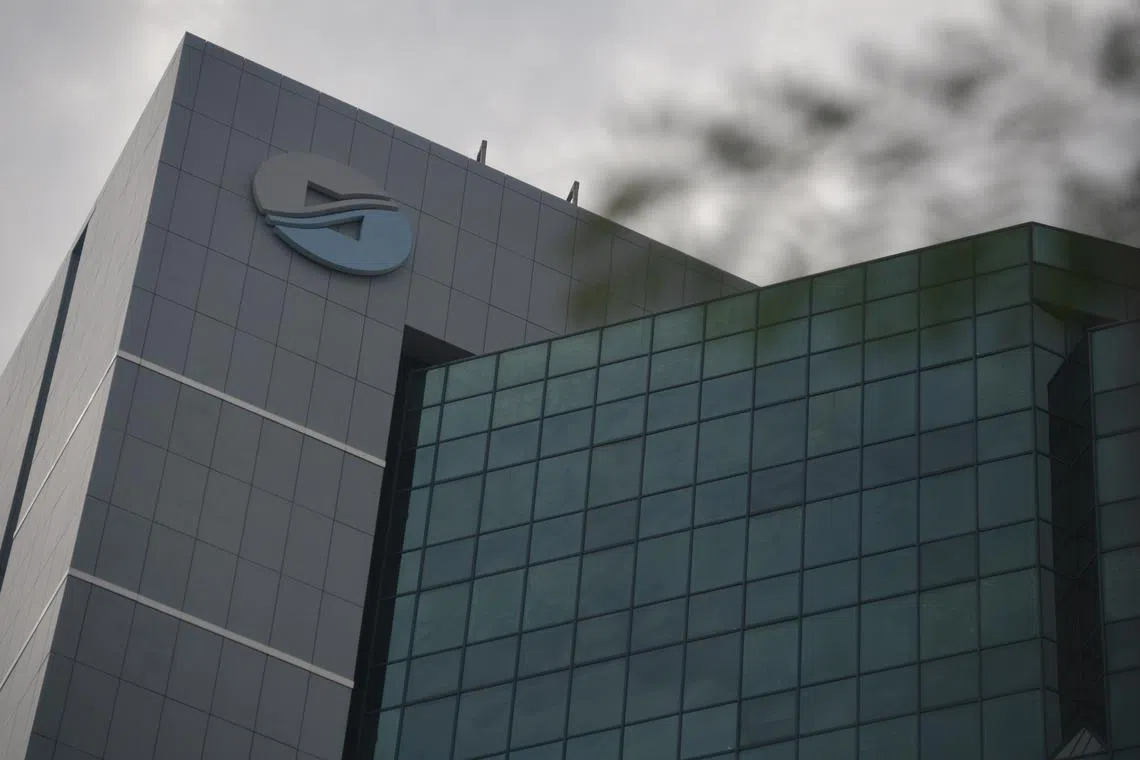Jail for syndicate member linked to nearly $8 million worth of fraudulent tax claims
Sign up now: Get ST's newsletters delivered to your inbox

The GST-related offences involved fraudulent claims and the syndicate had forged at least 183 sales invoices.
PHOTO: ST FILE
SINGAPORE - A man admitted being a high-ranking member of a syndicate that exploited the Goods and Services Tax (GST) scheme administered by the Inland Revenue Authority of Singapore (Iras).
Ang Chee Keong, 48, was also involved in two other unrelated criminal schemes, including a phishing scam.
The GST-related offences involved fraudulent claims and the syndicate had forged at least 183 sales invoices, which falsely stated that a firm called Nagore Trading made at least $56 million in sales.
These later formed the basis for nearly $8 million worth of fraudulent tax claims, and Iras paid out more than $772,000 to the offenders.
The prosecution said: “A ‘paper exercise’ (had been) conducted to create a forged paper trail of sham transactions, on which basis fraudulent claims for tax refunds were later made.”
On Aug 1, Ang was sentenced to five years and eight months’ jail after he pleaded guilty to multiple charges including cheating.
Deputy public prosecutors Ryan Lim, Eric Hu, Matthew Choo and Lee Da Zhuan stated in court documents that the two masterminds of the scheme linked to Nagore were Singaporean Luke Giam Zi Hin, 40, and Vietnamese Trinh Tien Dung.
Nagore was used to perpetrate the scheme from Feb 4, 2015 to Jan 28, 2016, but court documents did not disclose the outcome of the pair’s cases.
The DPPs said that in 2014, a man took instructions from Dung and approached Ang to join the scheme which involved setting up of shell companies, but no actual trading would be conducted between them.
Instead, the companies would simply issue forged invoices purportedly showing sales and purchases.
Ang, a Singaporean, agreed to take part in the scheme and another man incorporated Nagore on Dec 20, 2014, with a paid-up capital of $50,000.
Among other things, between Feb 4, 2015 and May 27, 2015, Ang engaged in a conspiracy with his accomplices to forge 106 sales invoices purportedly issued by Nagore for supposed sales to three other firms.
The group continued committing similar offences before Nagore ceased operations on Jan 28, 2016.
The DPPs said: “The accused persons decided that there was an increased risk of detection, should Nagore continue to issue forged sales invoices, given that Nagore had already been operating for close to a year.”
In an unrelated case, the DPPs said that Ang was also involved in a phishing scam, adding: “The accused and his co-conspirators used a machine known colloquially as an ‘SMS Blaster’, mounted in the back of a car, to broadcast SMSes in Singapore’s Central Business District.
“These messages, which appeared to be from (a bank), sought to induce recipients to follow a link to a website, where they would then be asked to enter their (bank) card details.”
Court documents stated that Ang and his co-conspirators then sought to “bind” these cards to payment applications on untraceable “burner” phones, and eventually use them to add value to digital wallets.
On Aug 11, 2022, Ang and his conspirators obtained details for at least four cards and were able to extract $120 from one card held by an unknown victim.
Another 50 cents was charged to a card held by another victim.
“Fortunately, their criminal scheme was short-lived, as the phishing website was shut down by the police a short time after their operation began, said the DPPs.
Ang was also part of a third criminal scheme involving fraudulent transactions on online marketplace Carousell.
For these offences, his co-conspirators obtained bank card details from a certain Telegram group.
Using accounts controlled by themselves, they would cause “buyers” to make sham purchases from a “seller” using those card details.
As a result, banks were defrauded into paying the “seller” the proceeds of those sham purchases.
Over 10 days in August 2022, Ang’s co-conspirators attempted to pay themselves $108,268 using the card details they obtained, and duped the banks into paying out $61,382.
Ang was involved in laundering more than $21,000 of these proceeds.



